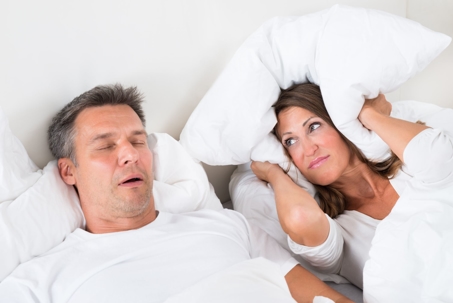Do I Have Sleep Apnea?
Sleep apnea is a common chronic condition that causes patients to experience intermittent pauses in breathing and is often associated with loud snoring. Because these pauses in breathing are brief, many patients live with undiagnosed sleep apnea.
Sleep apnea can disrupt your sleep cycle, but it can also impact your overall health. Keep reading to learn how our team at ProHEALTH Dental can help diagnose and treat your sleep apnea.
Why Seeking a Diagnosis is Vital
While many patients may assume that a diagnosis can help prevent snoring and get a better night’s sleep, discovering you have sleep apnea and seeking treatment can help protect your health as well.
Sleep is essential for proper health, but sleep apnea can cause more than just snoring and sleep interruptions. It can have severe consequences like high blood pressure and an increased risk of insulin resistance, type 2 diabetes, recurrent heart attacks, strokes, depression, weight gain, and abnormal heartbeats.
Diagnosing Your Sleep Apnea
There are three types of sleep apnea that your doctor will test you for:
- Obstructive sleep apnea (OSA, involving throat muscles collapsing.)
- Central sleep apnea (CSA, involving the brain.)
- Complex sleep apnea syndrome (a combination of OSA and CSA.)
Research shows that OSA is the most common form of sleep apnea affecting approximately 12% of US adults, though about 80% of cases are undiagnosed. To diagnose you, your doctor will perform either or both of the following sleep studies:
- Polysomnography: Patients are hooked up to equipment that monitors their heart, lung, and brain activity, breathing patterns, arm and leg movements, and blood oxygen levels.
- Home sleep apnea testing: An at-home version of polysomnography to diagnose obstructive sleep apnea. This test focuses on airflow, breathing patterns, blood oxygen levels, limb movements, and snoring intensity.
How is Sleep Apnea Treated?
Common treatments for sleep apnea include continuous positive airway pressure (CPAP), oral appliance therapy (OAT), and surgery in some instances. While CPAP is the most prevalent treatment for OSA—and works for many patients—it is important to note that there are alternative therapies for those who are unwilling or unable to tolerate CPAP. In addition to (or along with) these options, lifestyle changes such as weight loss or side-sleeping can help reduce the severity of OSA. Patients should be educated on their treatment options and should not hesitate to proactively open a dialogue with their medical providers.
The ProHEALTH Dental Approach
At ProHEALTH Dental, we believe in treating your oral health alongside your overall health. This means that we use a collaborative approach to treat sleep apnea with your physician’s help to improve your sleep and protect your health.
We can create a small, custom-made oral appliance, worn only while sleeping, that moves your jaw and tongue slightly forward, preventing your throat from closing when your muscles relax. This device can significantly improve sleep and the symptoms of obstructive sleep apnea and is especially effective for people intolerant of CPAP machines.
Request an appointment online with one of our dental sleep treatment experts today or give us a call at (855) 750-5011. Learn more about Dr. Arthur Feigenbaum, Director of dental sleep treatment here.

